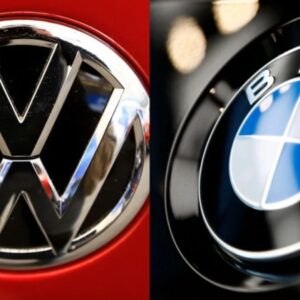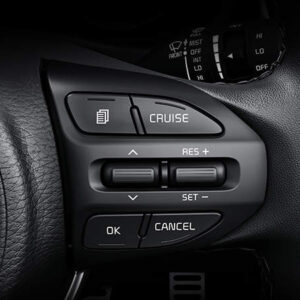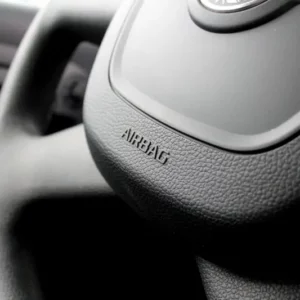What is financing a car? Buying a car is a major financial investment, even if you buy a used model. To make the cost more manageable, many drivers choose to finance their car with an auto loan. When you finance a vehicle, you pay for the car in monthly installments, rather than one lump sum.
While an auto loan can help you afford a car more easily, there are also some downsides to consider. In this article, we’ll explain everything you need to know about financing a car, including where to get financing and how to get the best loan terms for your situation.
What is financing a car?
Financing a car means that you are buying the vehicle with money that was loaned to you by a financial institution, like a bank. You can either finance the full cost of a vehicle, or make a down payment using cash, and finance the rest of the purchase. You pay the loan off in monthly installments, plus interest, over a predetermined period of time.

Most auto loans are secured, meaning your car is used as collateral. If you stop making your loan payments, the lender has the right to repossess the car and sell it to get their money back. While you technically own a financed car (unlike a lease), the lender can still take the car back if you default on the loan or violate the loan agreement in any other way.
How does car financing work?
When you finance a car, a financial institution lends you the money you need to buy the car. In exchange, you pay the lender interest and possibly fees to borrow that money over a specific number of months.
Car financing options include banks, credit unions, online lenders, finance companies and some car dealerships. Financing through a credit union or bank may be less expensive than getting a loan through a dealership because dealers may increase interest rates to pay themselves back for arranging your financing. And some dealerships provide their own financing.
Referred to as in-house financing or “buy-here, pay-here” dealerships, these car dealers may charge interest rates that are much higher than those charged by other types of lenders.
If you plan to finance a car, you’ll need to shop and apply for a car loan. If you’re approved, you’ll make monthly payments until the loan is paid off. Each payment you make will be split into the following two parts:
- The principal payment, which goes toward paying back your loan balance
- The interest payment, which pays interest due
Part of your payment may also go toward certain loan fees, like late payment fees.
Your monthly car loan payment is determined by your loan amount (the car’s purchase price minus any down payment and trade-in), annual percentage rate, or APR, and loan term. The APR is one of the biggest factors to consider.
It affects how much money you’ll end up paying for the car. Different factors can affect your interest rate, including your credit, loan term and whether you’re buying a new or used car.
Once you repay the loan in full, your lender will usually send a lien release document (depending on your state) to the state transportation agency. The car’s title will then be updated and transferred to you.
How healthy does your credit need to be to finance a car?
There isn’t one universal minimum credit score you need to have in order to finance a car. Each lender sets its own minimum credit scores and weighs factors such as the type of car you’re buying or your income differently. Some lenders may be willing to work with people who have bankruptcies or recent repossessions in their credit history, for example.

Still, the average credit score was 718 for new-car loans and 662 for used-car loans in the third quarter of 2019, according to Experian’s State of the Automotive Finance Market report. The report also shows that only 38% of all car loans were made to people with credit scores below 660.
It’s generally a good idea to take some time to build your credit before applying for car financing — if you’re able to wait. If your credit scores are low, you may receive fewer offers than someone with good credit. And if you’re approved for a loan, you’ll likely get a higher interest rate than someone with a better credit score.
People with credit scores over 780 paid an average interest rate of 4.01% on their new-car loans, while those with credit scores of 500 or less paid an average rate of 14.3%, according to Experian’s report. This could translate to a major difference in how much interest you pay over the life of your loan.
Let’s say you got a five-year $20,000 car loan. Here’s how your credit could affect how much you pay in interest.
You’d pay more than $8,000 in interest on your loan with the 14.3% interest rate. That means your $20,000 vehicle would actually cost you more than $28,000.
Is it a good idea to finance a car?
Whether it’s a good idea to finance a car depends on your own financial situation. If you pay cash, you could avoid paying interest and any loan fees. But if paying in cash means you’d completely drain your savings, you could find yourself stuck if a financial emergency arises.
If you need a set of wheels and don’t have the cash in hand to pay for it, financing may be your only option. Be sure to pay attention to how much you finance versus the value of the car you’re buying. If you don’t make a down payment and finance the entire cost of the car, you could find yourself owing more than your car is worth within a year or two.
Financing a car could be a way to take advantage of dealership incentives and car manufacturer specials, such as 0% financing or rebates. But keep in mind that you’ll typically need to get a car loan through the automaker’s finance company to qualify for these offers
Factors that make up a car loan
Car loans can seem complicated, but they’re actually fairly straightforward. Here are some car loan terms you should know before you apply for a loan.
Down Payment
A down payment is the amount of money you put toward the car. Lenders typically favor borrowers who make a down payment on their vehicle, because it shows they are committed to the loan.
Since you can’t borrow a down payment (it must be made in cash you already have), putting more money down on the car can help you get better loan terms, like a lower interest rate.
Annual Percentage Rate (APR)
The annual percentage rate (APR) is essentially the cost of borrowing money. When you apply for a loan, the lender assigns you an APR based on your credit score, which determines your creditworthiness.
For instance, if you have poor credit, the lender might consider you more likely to default on your loan and set a higher APR to mitigate the risk. Lenders tend to prefer drivers with good credit scores, which helps you qualify for a lower APR.
Loan Term
The loan term is the period of time you have to pay back the money you borrowed. Typical loan terms range from 36 to 72 months, but some lenders allow you to borrow money for shorter and longer periods.
Choosing a longer loan term allows you to pay off the car slowly, but it also means you’ll pay more interest. If you can afford to spend more on your monthly car payment, consider opting for a shorter loan term. You’ll pay less interest and you’ll build equity in the car more quickly.
Advantages of financing a car
Financing a car can be a smart financial move for many people. Here are some of the benefits of getting a car loan.

Immediate Funding
Saving up enough money to pay cash for a vehicle can take years. With financing, you can get the money quickly. Even if you go to a local dealership without securing a loan beforehand, it’s possible to apply for a loan, get the funds, and drive off in a new car on the same day.
Eventual Ownership
If you’re shopping for a car on a budget, you might also be considering a lease. But with a financed car, you will eventually own the car outright. You can choose to keep the car for years or sell it and use the money to buy your next vehicle.
Build Equity in the Car
When you finance a car, you still build equity in your car over time. At a certain point during the loan term, you will eventually own a bigger percentage of the car’s value than what you still owe. For comparison, when you lease a car, you never build equity in the vehicle.
Improved Credit
Another benefit of financing a car is that it can improve your credit score. Making your monthly payments on time shows credit reporting agencies that you’re a reliable borrower. By building up your credit score now, you can potentially get more favorable loan terms in the future.
Downsides of financing a car
While financing a car is a popular option, there are some downsides to consider. Here are some things to know before you choose to get an auto loan.
Higher Costs
One of the biggest downsides to financing a car is the cost. Regardless of what APR you secure, you’ll end up paying more than the car is worth over the loan term. You can avoid interest rates and other fees by paying for a new or used car in cash.
Limited Vehicle Options
If you have your heart set on a certain type of vehicle, financing might not be the right option. Some financial institutions only provide loans for specific types of purchases. For instance, a bank might not give you a loan to buy a car that’s more than 10 years old.
Insurance Requirements
To mitigate risk, lenders often require borrowers to have a full coverage car insurance policy throughout the loan term. Full coverage policies include collision and comprehensive coverage that pay for your vehicle’s repairs if you cause an accident.
These policies are more expensive than minimum coverage policies, which only provide the minimum amount of required coverage in your state.
Where can you obtain car financing?
Many financial institutions provide auto loans. Here are a few places to look if you’re thinking about applying for a loan.
Credit Unions
Credit unions are nonprofit organizations that offer banking services and loans. If you have excellent credit, getting a loan from a credit union could help you get a lower APR. In general, a credit union’s main objective is to serve its members rather than make the most profit, so it’s worth researching local credit unions to see what your options are.
Banks

If you have an existing relationship with a bank, see if they offer car loans. While auto loans from banks sometimes have stricter requirements and higher interest rates, you might get a better deal if you’re an existing customer and have adequate funds in your bank accounts.
Dealerships
Car dealerships work with a network of lenders to offer auto loans to car buyers on the spot. These lenders tend to charge the highest interest rates, but it’s a convenient option if you don’t have time to get a loan before you start car shopping. If you have poor credit, a dealership’s lender might be willing to work with you in order to close the sale.
Online vs. In-person Auto Financing
There are a few ways to get an auto loan. You can visit a bank or credit union in person, which could give you the most leverage to secure a favorable APR. You can also apply for a loan at the dealership through one of their lenders.
Applying for auto financing online is probably the easiest option. You can apply from your computer any time, and many lenders will give you a decision in as little as one business day.
How to get an affordable auto loan
There are lots of ways to obtain an affordable auto loan. Before you start applying for loans, review these tips to get the best loan terms for your financial situation.
Improve Your Credit
If your credit score is low, it might be smart to hold off on financing. Improving your credit will help you qualify for a lower interest rate, so you’ll spend less overall. Here are some effective ways to boost your credit score:
- Catch up on past-due accounts
- Make on-time payments
- Lower your credit utilization
- Pay off as much debt as possible
Shop Around
As a best practice, you shouldn’t accept the first loan offer you get. Shop around and compare lenders to see what loan terms you can get from different banks. Some lenders might also offer unique incentives. For instance, credit unions may offer military discounts for active duty personnel, veterans, and their families.
Get Preapproved
Before you head to the dealership, get a letter of pre-approval. A preapproval is an offer letter from the lender that includes your loan terms, like your interest rate and loan period.
Just because you get preapproved doesn’t mean you have to borrow the money. A preapproval letter can help you negotiate better loan terms from a different lender, especially one that works with the dealership you’re visiting.
Should I finance a car?
Whether you should finance a car or buy a vehicle outright depends primarily on what you can afford and your credit score. Financing a vehicle can allow you to pay for a vehicle that you otherwise could not afford, but could cost more than the value of the car over time due to interest.

However, even if you have the capital to pay for the full value of a vehicle, it may not be the right time and an alternative could suit you better.
Should I pay Cash for a Car or Finance?
In many cases, you should pay cash for a car up front rather than getting financing through an auto loan. Drivers who cover the complete cost of their vehicles at the start won’t have to pay interest on their purchases, making it cheaper over the long haul. However, if you don’t have the capital, it may be better to finance a car.
Financing a car is popular because it’s not always possible for motorists to cover the full cost of their vehicles immediately. Life without a car can be difficult in certain regions, so auto financing provides a workaround for those who need vehicles for their day-to-day lives.
Financing a car can be a better option than paying cash in these scenarios:
- The interest rates on your existing debt, such as credit cards, are higher than the auto loan rates you qualify for.
- The rates of return on your investments are higher than the auto loan rates you qualify for.
Should I Finance or Lease a Car?
Leasing a car can be an attractive option since it comes with lower monthly payments and you don’t have to worry about depreciation. Getting a car lease can also come with many perks like free routine maintenance. However, financing a car is cheaper in the long run compared to getting a leased vehicle.
You can do anything you want to the vehicle during the course of a purchase loan and once it is paid off, you gain ownership of the car. When a car lease ends, you have to return your car and you’ll usually have to pay expensive fees if it is damaged in any way. In the end, it depends on what you can afford, but typically purchasing a vehicle is a better option.
Tips for financing a car
Below are some tips to keep in mind if you decide to finance a car through a purchase loan:
- Get preapproved: Getting preapproval for an auto loan gives you leverage and a better understanding of what you can afford. What you are offered helps you find out what to rates and terms to expect from a dealer and gives you perspective on what is a good deal for your financial situation.
- Put down a sizable down payment: Conventional wisdom suggests that putting down at least 20% of the vehicle’s value is a good idea. The higher your down payment is, the lower your monthly payments and interest rates will be.
- Don’t buy vehicle add-ons immediately: Dealerships will try to sell you a number of things including gap insurance and extended warranties at extremely high prices. While these can be good investments, there is no need to buy them as soon as you get a loan and it is better to take your time and compare options.
- Get a shorter loan term: If you can afford it, getting financing a car with a shorter loan term length allows you to have lower rates and pay less in the long term.
- Finance a car you can afford: Generally it is recommended by financial experts to not pay more than 10-15% of your take home pay on car payments. Also, considering purchasing a used car can save you a lot of money as well.
FAQs
What is the difference between financing and leasing a car?
The biggest difference between financing and leasing a car is ownership. When buying a car through a purchase loan you’ll eventually own the car, but if you are leasing the car must be turned back in. There is typically more freedom in how you use your car when you buy with an auto loan.
Does financing a car build credit?
Financing a car can help build credit if you consistently make full and on-time payments to your lender. While having a lender do a hard credit check when you’re rate shopping temporarily dings your credit, you’ll be able to improve your credit after tha
Does financing a car mean you own it?
You don’t officially own your vehicle when financing until the total balance of the auto loan is paid off and the title is transferred to you. However, you are still able to modify your vehicle and use it as if you had ownership.
Above is information about What is financing a car? that we have compiled. Hopefully, through the above content, you have a more detailed understanding of How does car financing work? Thank you for reading our post.









